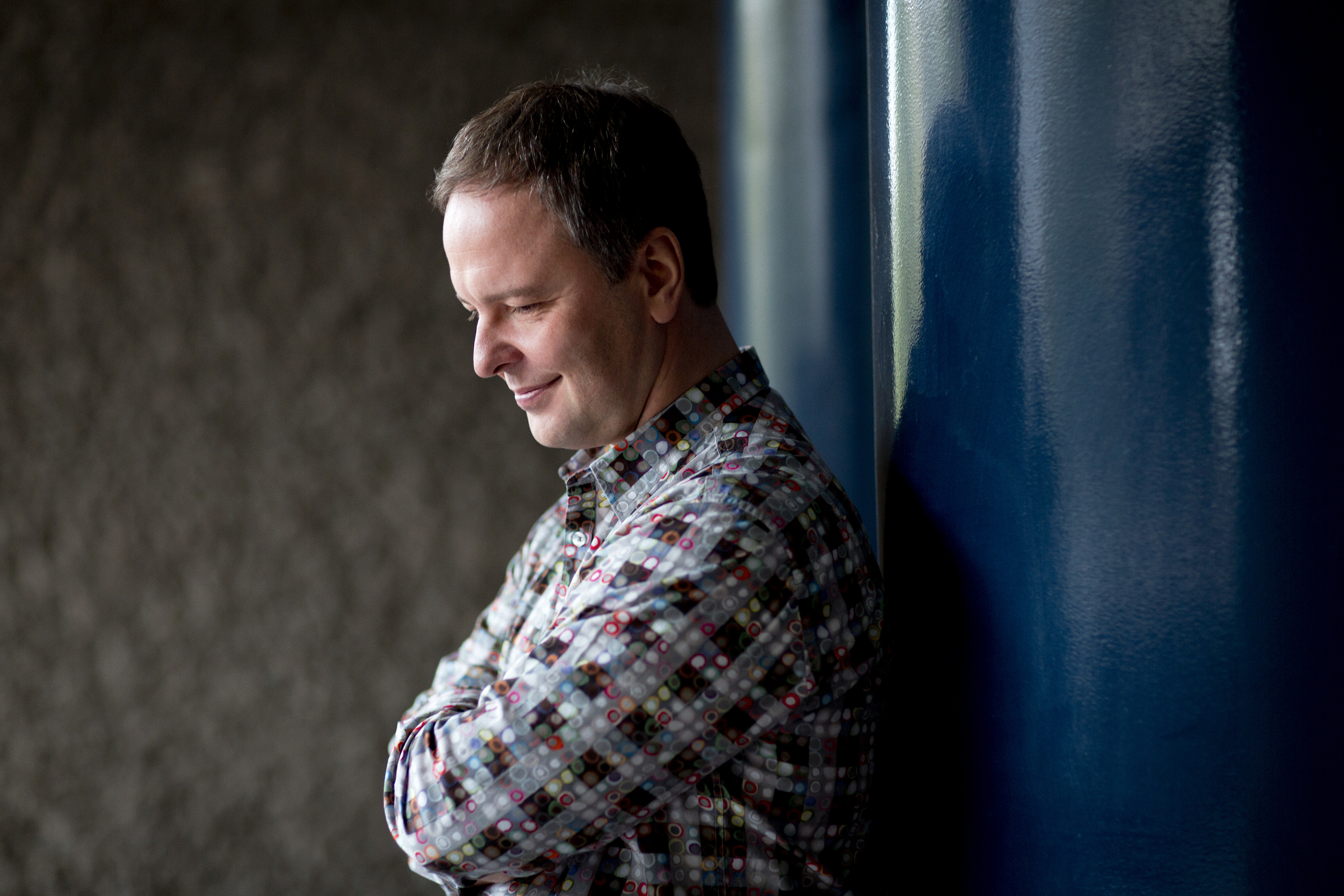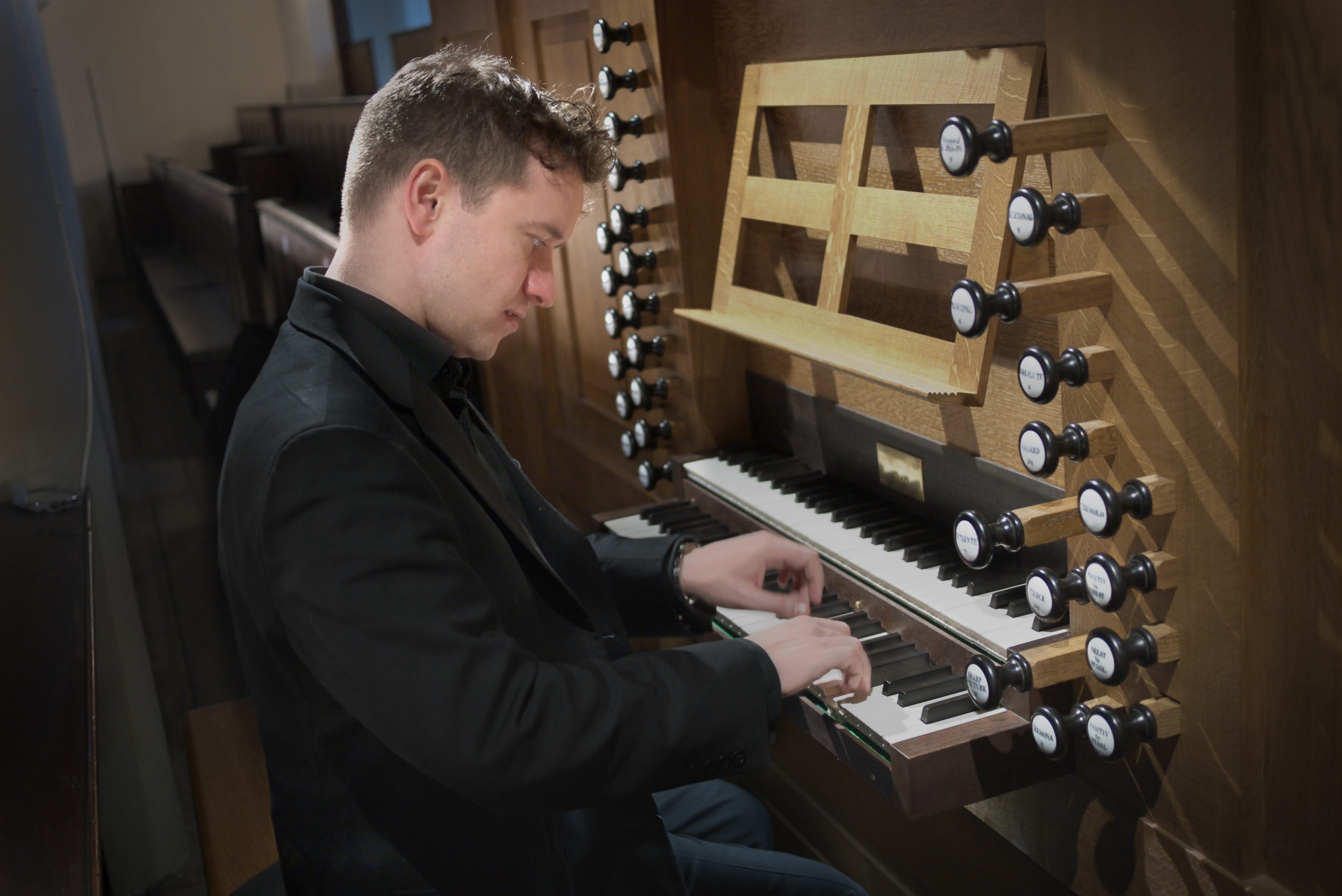Unlike many of the organists this season this was a first visit for the Director of Music of Westminster Central (Methodist) Hall. Gerard Brooks certainly seemed very much at home with the Willis organ as he brought some fine performances throughout his well planned and varied programme.
Every organ recital should include some Bach and this one opened with the Concerto in G, a reworking of an interesting piece originally composed by Johann Ernst. Four Sketches for pedal-piano by Schumann followed and the first half ended with Mendelssohn’s Sonata No 2 in C minor. Before this we heard the beautiful small-scale Reger work, Benedictus, with its exquisitely melancholy opening and closing and more robust middle section.
Having begun with music of Germany the second half shifted our focus to France. Gerard Brooks made some interesting comparisons between the organ builders Henry Willis and Aristide Cavaillé-Coll, both doing so much to advance the organ repertoire in their respective countries. Joseph Bonnet’s fiery Etude de Concert got the half off to a brilliant start, followed by a less familiar piece by Cesar Franck, Pastorale. It was lovely to hear this piece which seems to share several elements with the composer’s Prelude, Fugue & Variation. Lefebure-Wely is another familiar name these days and his style is a great contrast to everything that had featured before. It was good to hear a piece by him that I had not heard before, Sortie in G minor.
Throughout the evening Gerard Brooks gave us some excellent registrations and there were many times when quieter, more reflective music was played. A short movement, Andante cantabile, from Symphony 4 by Widor, was another such opportunity for showcasing a range of solo stops and quieter combinations which are so effective in this acoustic. A stirring rendition of Guilmant’s Morceau de Concert brought the programme to a fitting conclusion, which was topped off with another short Guilmant offering, Verset.
It is to be hoped that Mr Brooks will return in a future series.
For details of the remainder of this series visit www.oldtownparishhastings.org.uk
Stephen Page

 One of the underlying objectives of the Proms, from the earliest days, has been to make music accessible to people from a variety of backgrounds, breaking down barriers that may exist and ultimately creating a larger audience for ‘classical’ music in general. Recent years have seen the introduction of more specialised proms bringing in different musical genres and crossovers from popular, folk and film music. This particular prom was the first given over entirely to music exclusively written for the ever expanding games market. As the title might suggest this was an attempt to highlight a variety of music written across the last few decades, from the earliest games, where computer generated sound was exciting but severely limited, to the seemingly unlimited potential of the latest technology.
One of the underlying objectives of the Proms, from the earliest days, has been to make music accessible to people from a variety of backgrounds, breaking down barriers that may exist and ultimately creating a larger audience for ‘classical’ music in general. Recent years have seen the introduction of more specialised proms bringing in different musical genres and crossovers from popular, folk and film music. This particular prom was the first given over entirely to music exclusively written for the ever expanding games market. As the title might suggest this was an attempt to highlight a variety of music written across the last few decades, from the earliest games, where computer generated sound was exciting but severely limited, to the seemingly unlimited potential of the latest technology.
 The UK premiere of Mark Adamo’s 1998 two act opera was an interesting event. It sits well with Opera Holland Park’s policy of mixing the very well known work with the much less familiar within a single season and features some talented singers at various stages of their careers. It was also good to see the composer there, clearly moved by this account of his work.
The UK premiere of Mark Adamo’s 1998 two act opera was an interesting event. It sits well with Opera Holland Park’s policy of mixing the very well known work with the much less familiar within a single season and features some talented singers at various stages of their careers. It was also good to see the composer there, clearly moved by this account of his work.
 An appreciative audience gathered to hear the first concert of the new season of this well established summer season. Daniel Moult is Head of Organ at Royal Birmingham Conservatoire and is very much involved in the world of organ education and broadcasting including with the BBC. Opening with a selection from Handel’s Water Music he gave an entertaining evening of varied music from different periods and a range of compositional styles.
An appreciative audience gathered to hear the first concert of the new season of this well established summer season. Daniel Moult is Head of Organ at Royal Birmingham Conservatoire and is very much involved in the world of organ education and broadcasting including with the BBC. Opening with a selection from Handel’s Water Music he gave an entertaining evening of varied music from different periods and a range of compositional styles.